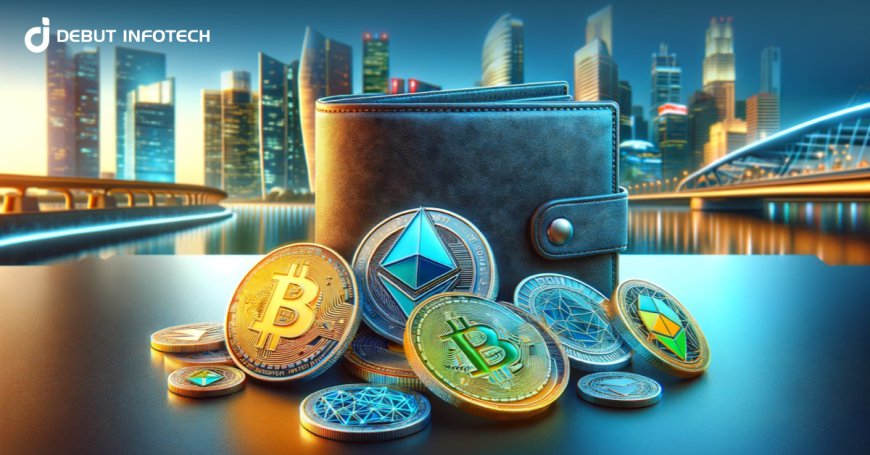Understanding Decentralized Wallet: The Future of Crypto Storage

In the rapidly evolving world of cryptocurrencies, security and control over one's assets are paramount. Centralized wallets, while convenient, often leave users vulnerable to hacks and data breaches. Enter decentralized wallets, a transformative solution that empowers users to take full control of their digital assets. In this blog, we will explore what decentralized wallets are, their advantages, and their impact on the cryptocurrency ecosystem.
What is a Decentralized Wallet?
A decentralized wallet is a type of cryptocurrency wallet that allows users to store, manage, and transact their digital assets without relying on a centralized authority or third-party service. Unlike centralized wallets, where the private keys are held by an intermediary (like an exchange), decentralized wallets give users full ownership of their private keys. This means that users have complete control over their funds and transactions.
There are two primary types of decentralized wallets:
-
Software Wallets: These are applications that can be downloaded on a computer or mobile device. Examples include MetaMask, Trust Wallet, and Exodus. They allow users to interact with various blockchain networks directly from their devices.
-
Hardware Wallets: Physical devices that store cryptocurrency offline. Examples include Ledger Nano S and Trezor. Hardware wallets provide enhanced security, as they keep private keys offline, making them less susceptible to online attacks.
Key Features of Decentralized Wallets
Decentralized wallets come with several key features that make them appealing to cryptocurrency users:
-
Full Control: Users have complete ownership of their private keys, which means they are the sole custodians of their funds. This eliminates the risk of losing access to assets due to a third party’s failure or a hack.
-
Enhanced Security: By keeping private keys offline (in the case of hardware wallets) or in a secure software environment, decentralized wallets offer a higher level of security compared to centralized wallets.
-
Privacy: Decentralized wallets often prioritize user privacy. Transactions are generally pseudonymous, meaning that personal information is not directly linked to wallet addresses.
-
Compatibility with Multiple Blockchains: Many decentralized wallets support a variety of cryptocurrencies and blockchain networks, allowing users to manage diverse assets in one place.
-
User Control of Transactions: Users can interact directly with the blockchain, enabling them to set their transaction fees and avoid reliance on third-party platforms.
Advantages of Using Decentralized Wallets
The benefits of decentralized wallets extend beyond just control and security. Here are some additional advantages:
-
Reduced Risk of Hacking: Since decentralized crypto wallet do not store funds on centralized servers, they are less attractive targets for hackers. Even if a user’s device is compromised, the funds in a hardware wallet remain secure.
-
No Reliance on Third Parties: Users do not have to trust an exchange or service provider with their assets. This autonomy fosters a more secure and transparent environment for managing cryptocurrencies.
-
Access to DeFi: Decentralized wallets often come with built-in access to decentralized finance (DeFi) platforms, enabling users to lend, borrow, and earn interest on their crypto assets.
-
Interoperability: Many decentralized wallets are designed to work across multiple blockchain networks, facilitating easy asset management and exchange.
-
Transparent Transactions: All transactions made through decentralized wallets are recorded on the blockchain, ensuring transparency and traceability.
Challenges of Decentralized cryptocurrency Wallets
While decentralized cryptocurrency wallets offer numerous benefits, they are not without their challenges:
-
User Responsibility: With full control comes full responsibility. If users lose their private keys or forget their passwords, they may permanently lose access to their funds.
-
Complexity: For beginners, the technical aspects of using decentralized wallets can be daunting. Understanding how to securely manage private keys and interact with blockchain networks requires a learning curve.
-
Limited Recovery Options: Unlike centralized wallets, which often have recovery processes for lost access, decentralized wallets typically do not offer such options. This can be risky for inexperienced users.
Conclusion
Decentralized wallets are revolutionizing the way individuals interact with cryptocurrencies, providing enhanced security, privacy, and control. As the demand for decentralized finance and self-custody solutions continues to grow, these wallets are poised to become a vital part of the cryptocurrency ecosystem. While challenges remain, the advantages of decentralized wallets significantly outweigh the drawbacks for many users.
Whether you are a seasoned crypto enthusiast or a newcomer to the space, understanding the importance of decentralized wallets is crucial for ensuring the safety and accessibility of your digital assets. Embracing this technology will not only empower you as a user but also contribute to the broader movement toward a decentralized financial future.
